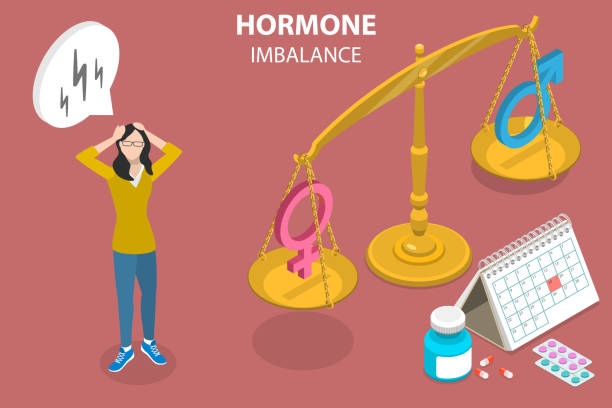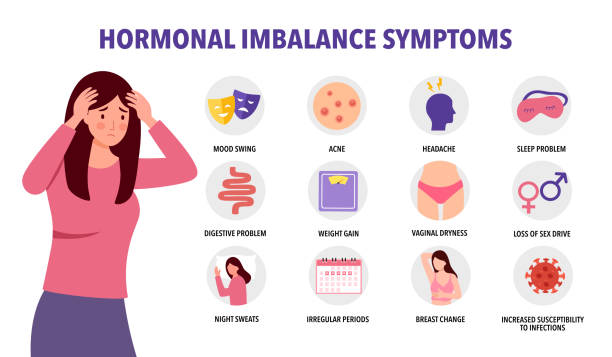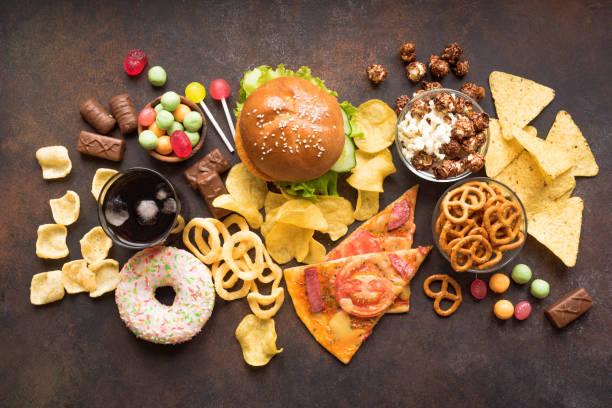
Hormonal balance is essential for our health. Even a slight change in its balance disrupts body functions, from metabolism to reproductive health and sleep. It plays a crucial role in our overall well-being, whether excess thyroid hormones lead to hypothyroidism or little insulin causes diabetes. It is all about the right balance. This blog is all about how to stay informed about checking your hormones.

Hormones are chemical messengers that coordinate many functions in your body by carrying messages to different organs, skin, tissues, and muscles of the body. It is essential to keep hormones balanced as they control many body functions, like energy, mood, sleep, immune system, inflammation, hair, and skin. Too much or too little hormone can disrupt the balance, affecting normal body functioning. The journey to hormonal balance depends on what you eat. If you eat right, the body automatically does right.
It occurs when the body has too many or too few hormones secreted in the blood, disrupting its normal functioning. It affects both women and men and causes a wide range of symptoms depending on the hormones involved.
An imbalance in hormones leads to many health problems, including diabetes, sleep disturbance, high blood pressure, weak bones, infertility, irregular periods, and a lot more health issues.
Symptoms:

Consumption of alcohol is one of the most common problems worldwide. People drinking alcohol regularly are at higher risk of disabilities, diseases, and deaths. Its consumption is linked to increased cancer risks. Recent research shows a direct link between alcohol with various cancers, including the oral cavity, colon, esophagus, liver, and breast cancer. In the body, alcohol is metabolized and converted into a toxic compound called acetaldehyde, which is a carcinogen and a cancer-causing agent. This poisonous compound damages DNA and protein structures within cells, causing mutation and increasing cancer risks among individuals. Breakdown of alcohol causes oxidation stress by producing reactive oxygen species, ultimately increasing DNA mutation.
It also increases estrogen levels and some other hormones in the body and leads to an increased risk of hormonal-linked cancers like breast cancer. Chronic alcohol consumption also affects immunity and decreases the body’s ability to identify and eliminate cancer-causing cells. Drinking alcohol regularly has adverse effects on body function as it disrupts the balance of endocrine glands and causes hormonal disturbances that have effects at both behavioral and physiological levels. These alcohol-induced hormonal dysregulations affect the entire body and can result in various disorders such as cardiovascular diseases, reproductive deficits, immune dysfunction, certain cancers, bone disease, and psychological and behavioral disorders.

The effect of dairy on hormonal balance varies from person to person, as well as the type of dairy consumed by individuals and their sensitivity level. The link between cancer and dairy consumption is complex, and it varies depending on the type of cancer.
Recent research shows that cow milk is associated with an increased risk of cancers, including breast cancer and prostate cancer, due to its influence on hormonal pathways. The hormones present in milk, like progesterone and estrogen, may disrupt the balance of hormones in the body. These naturally occurring hormones in milk may interact with the endocrine gland, affecting its normal functioning. They increase IGF -1 levels (insulin-like growth factor), which causes conditions like acne and increases the risk of cancer. It promotes the growth of both normal and cancerous cells.
Moreover, a high calcium intake in dairy also reduces active vitamin D, which protects against cancer cells. Dairy consumption also decreases testosterone and estrogen levels, affecting reproductive health. Additionally, milk proteins like casein affect thyroid glands and hinder their functions.
Factors contributing to hormonal imbalance:
Numerous other factors are also involved in disrupting hormonal balance, including
Sleep
It is the most critical factor in regulating hormonal balance. Hormone levels rise and fall throughout the day, and during sleep, the body undergoes many repair processes, and hormones are secreted according to the body’s situation. The quality of sleep disrupts hormone levels. Disturbed sleep patterns will interfere with hormones like melatonin, which is related to sleep, and some hormones that regulate growth and tissue repair. Insufficient sleep also increases cortisol levels, which leads to stress and hormonal imbalance. Alao affects appetite and leads to obesity. Having a quality amount of sleep will regulate hormonal balance.
Stress
Stress is also a contributing factor in hormonal balance disruption. It raises cortisol and adrenaline levels, which disrupt the overall balance and lead to obesity, mood swings, and many cardiovascular issues. It is also seen that being under stress for a long time elevates cortisol and infuses the secretion of progesterone, estrogen, and thyroid hormones.
Exercise
Exercising regularly will maintain the hormonal balance by promoting mood-regulating hormones, maintaining insulin sensitivity, and regulating reproductive hormones. It also manages stress by reducing cortisol levels. On the other hand, high-intensity exercises have the opposite effect and they lead to the overproduction of cortisol and disrupt the balance of reproductive hormones like estrogen and testosterone.
Age
Hormone production decreases naturally with age. In women with increasing age the the hormones estrogen and progesterone naturally decline due to menopause causing metabolism to slow down. In men, the testosterone level decreases causing a decrease in muscle mass and energy.
Medications
Some medicines including steroids, birth control pills, and hormonal replacement therapies can disrupt the hormonal balance and some medical conditions like PCOS, diabetes, and hypothyroidism may alter hormone production.

Poor dietary choices
A diet high in sugars and bad fats, high in carbohydrates and excessive caloric intake, fasting, and foods with high glycemic index cause disruption of hormonal balance.
Approach to Hormonal Balance
The holistic approach to treating hormonal imbalance involves certain diet modifications, moderate exercise, sleep, and stress management. Having a balanced meal plate with healthy fats like nuts and olive oil, skipping processed foods, and incorporating seeds in your diet like flaxseeds, sesame seeds, pumpkin seeds, and soybeans are healthy for maintaining and regulating hormonal production.
Hormonal balance is linked to a lot of body normal functioning. To keep this balance the best approach is to follow dietary patterns that support hormonal balance and metabolic health. Caloric restriction, having plate of Mediterranean diet, lowering cholesterol and having good fats in your plate, denying alcohol consumption all work in support of hormonal balance and ultimately lead to a journey of well-being and a better lifestyle.
Roop, J. K. (2018). Hormone imbalance—A cause for concern in women. Research Journal of Life Sciences, Bioinformatics, Pharmaceuticals and Chemical, 4, 237-251.
Wenner, M. M., & Stachenfeld, N. S. (2023). Sex hormones and environmental factors affecting exercise. In Sex Hormones, Exercise and Women: Scientific and Clinical Aspects (pp. 113-134). Cham: Springer International Publishing.
Bhalara, A., & Trivedi, S. (2024). Comprehensive Analysis of Factors Affecting Hormone Regulation in Humans. Scientific Research Journal of Biology and Life Science, 2(2), 10-14.
Calcaterra, V., Verduci, E., Stagi, S., & Zuccotti, G. (2024). How the intricate relationship between nutrition and hormonal equilibrium significantly influences endocrine and reproductive health in adolescent girls. Frontiers in Nutrition, 11, 1337328.
Mazza, E., Troiano, E., Ferro, Y., Lisso, F., Tosi, M., Turco, E., … & Montalcini, T. (2024). Obesity, Dietary Patterns, and Hormonal Balance Modulation: Gender-Specific Impacts. Nutrients, 16(11), 1629.